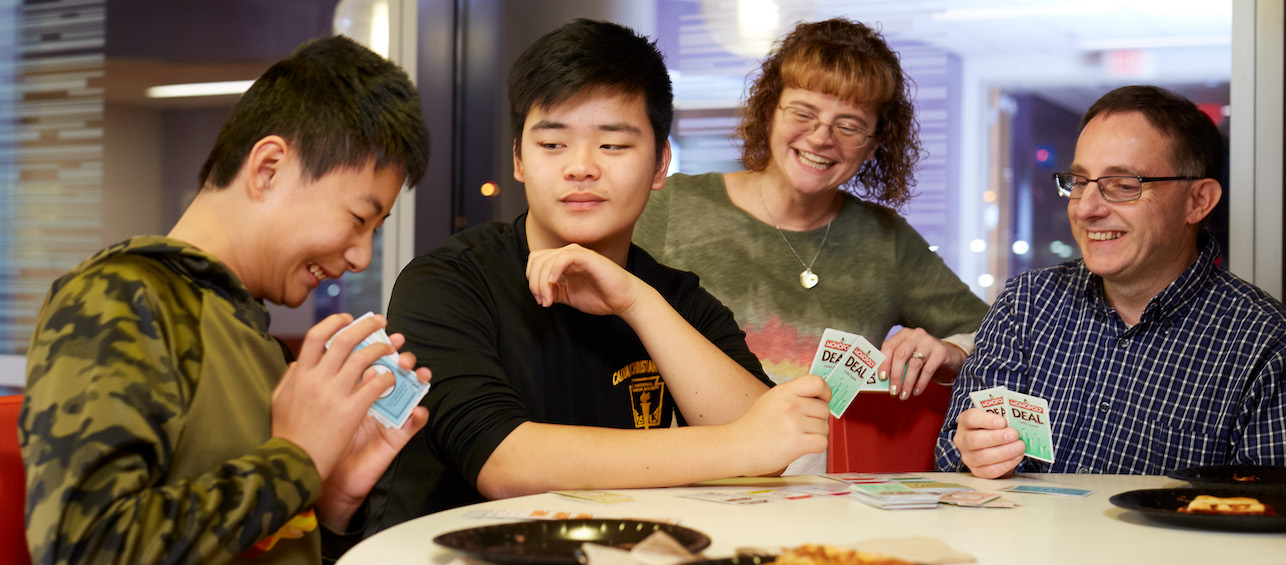By its very nature, adoption is complicated. It produces a wide range of emotions and experiences for all who are involved in the adoption.
So it makes sense that when we talk about it, we use “both/and” thinking. For example: Adoption can be both a beautiful thing and it is also rooted in loss. An adoptee can, and does, experience both feelings throughout their lifespan.
The Deep Impact of Adoption
In 2019, a book titled Seven Core Issues in Adoption and Permanency was published. The authors, Sharon Kaplan Roszia and Allison Davis Maxon, wrote about the deep impact of adoption that we see here in our International Adoption Center where we assist internationally and domestically adopted children along with their parents, pediatricians, and the community doctors who care for them.
The seven core issues the authors identified are: (1) loss, (2) rejection, (3) shame and guilt, (4) grief, (5) identity, (6) intimacy, and (7) mastery/control.
These shouldn’t be looked at as stages the adoptee goes through, but rather themes that can be ongoing or that can crop up throughout one’s life. While these issues can sometimes catch families by surprise, it’s important to recognize that they are normal and to be expected.
We feel it’s important to bring awareness to these issues, as they are ones that can occur and reoccur throughout an adoptive family’s life. Read on for a closer look at these issues and how they can affect an adoptee and their adoptive family.
The 7 Core Issues of Adoption
1. Loss
For adoptees, loss of birth/first parents results in a loss of connection to one’s roots and sense of safety and protection. That sense of loss can extend to cultural connections, heritage, foods, and relationships they made have formed before the adoption took place, no matter how brief.
The senses are also deeply affected: Every sight, smell, touch, taste and sound might be different in their new environment. Even for people who were adopted at birth, the connections that were made prenatally can be a factor.
2. Rejection
Feelings of rejection can lead one to believe that the loss was their fault, leaving them to feel judged, unwanted, different, less than, and not good enough. This can affect how they connect with their adoptive families down the road.
Sometimes feelings of rejection can lead to anxious attachments and attention-seeking behaviors, when the adoptee feels they need to do something to keep the new relationship or to avoid breaking these new connections.
3. Shame and Guilt
Adoptees might experience feeling shame in who they are, and guilt for their feelings and experiences, which can lead to beliefs of unworthiness and anxiety.
When an adoptee has a sense of connection to their birth family, which is normal, they can feel guilty about that connection or about wanting that connection. It doesn’t necessarily mean that they don’t love and aren’t happy in their adoptive family. Both feelings present together are not uncommon, and can be especially hard for children to understand.
4. Grief
Grief can be seen in the initial stages of adoption, but it is important to remember that adoption is a profound loss and that grieving of this can be experienced throughout the life span. Anniversaries, memories and developmental transitions can prompt this grief. It is also important to remember that this feeling is normal and valid.
Sometimes an adoptee won’t necessarily even know or realize a significant anniversary is approaching. But they might have sensory reminders from a certain season, time of year or holiday. It’s common for emotions and behaviors to come up around times like these.
5. Identity
Identity formation begins in childhood and continues throughout the teen years and into early adulthood. Exploring and questioning identity can make it especially difficult for adoptees to control their emotions since they often have fragmented or unknown histories.
As humans, we all go through that process of trying to understand and figure out who we are. That could be a particularly sensitive period of time for adoptees.
6. Intimacy
It can be hard for adoptees to experience intimacy and be vulnerable in relationships. Adoptees may struggle with feeling safe in close relationships, including with parents, friends and partners.
7. Mastery and Control
Mastery and control are difficult for adoptees who have had no control in significant areas of their life. A need for power and control can be seen across all stages of development as adoptees strive to regain power and control over their lives.
Often other people have made nearly all of the major decisions in an adoptee’s life. The desire for some sense of control frequently comes out in behaviors.
While these seven themes are common for adoptees to experience, it is also typical for both adoptive parents and birth/first parents to experience them. Arming yourself with this knowledge can help your family have a broader understanding of what all of you may feel or go through at different times throughout your lives.
While it may not always be in the forefront of a family’s mind, it is important to remind ourselves of the reality of adoption, and honor that it can be both/and.

